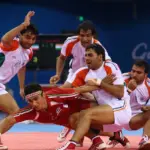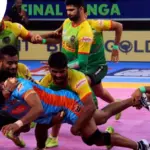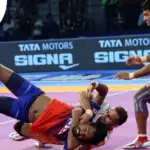Kabaddi, a traditional sport with deep-rooted origins in South Asia, has transcended its cultural boundaries to become a global sensation. With a perfect blend of strategy, strength, and agility, kabaddi has captured the hearts of millions, showcasing its unique charm on both domestic and international platforms.
The sport’s journey from village playgrounds to grand arenas has been marked by numerous tournaments that have not only popularized kabaddi but also celebrated the prowess of its athletes. In this article, we delve into the world of kabaddi tournaments, focusing on the most important ones that have shaped the sport’s legacy.
The Pro Kabaddi League: A Revolution Unleashed

The Pro Kabaddi League (PKL) stands as a watershed moment in the history of kabaddi. Launched in 2014, the league brought a professional touch to the sport, elevating it to unprecedented heights of popularity. With its city-based franchise format, the PKL not only introduced an engaging competition but also provided a lucrative platform for players to showcase their skills. The league’s success paved the way for other nations to establish their own professional kabaddi leagues, ensuring the sport’s global footprint.
The Asian Games Kabaddi: A Platform for International Glory
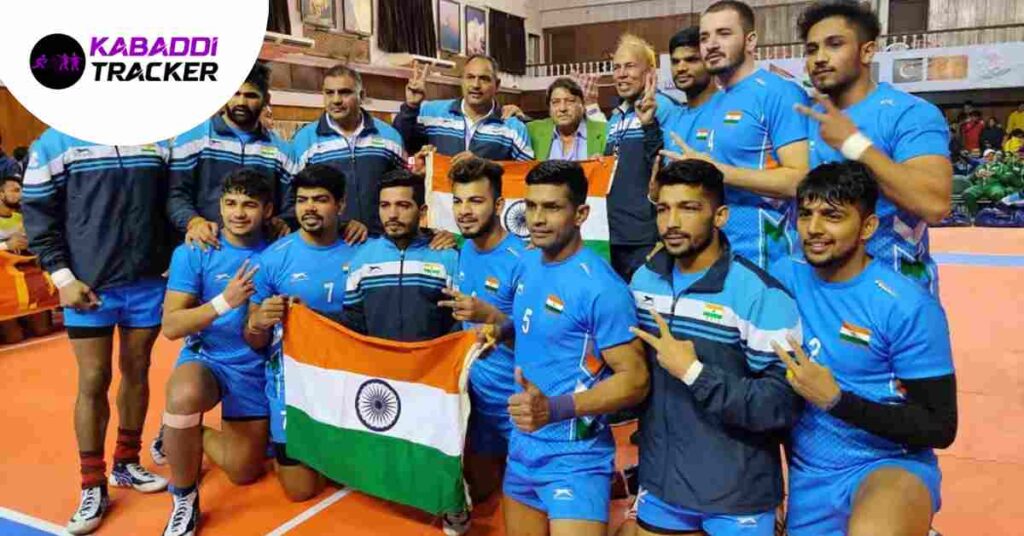
For kabaddi enthusiasts, the Asian Games is a showcase of unparalleled talent and rivalry. Kabaddi made its debut at the Asian Games in 1990, and since then, the tournament has become a pinnacle of international kabaddi competitions.
Nations like India, Iran, and South Korea have consistently dominated the kabaddi events, producing epic clashes that blend sheer athleticism with strategic brilliance. The Asian Games not only offer medals but also validate a nation’s kabaddi supremacy on a global stage.
Kabaddi World Cup : Uniting Nations through Sport
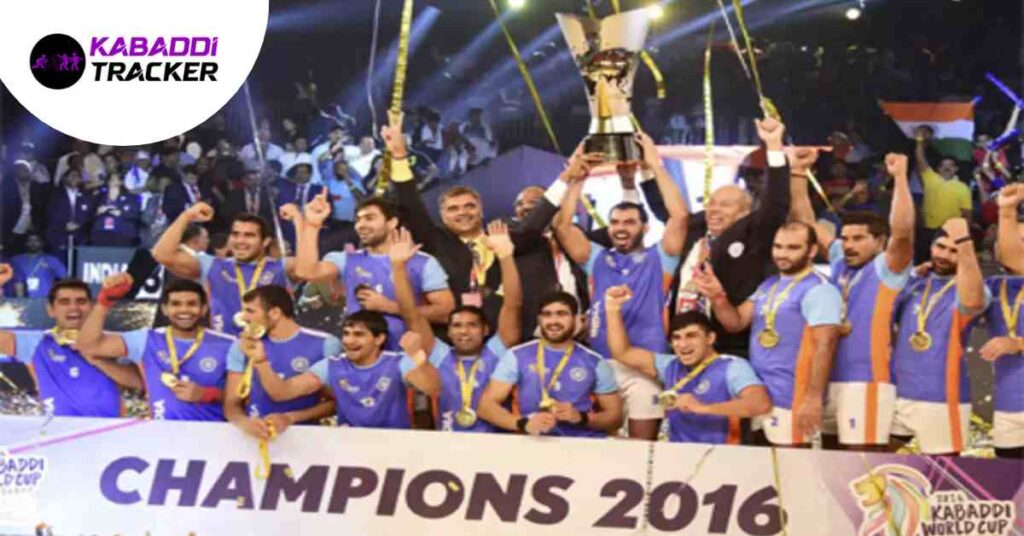
The Kabaddi World Cup serves as a melting pot of cultures, bringing together nations from around the world to celebrate the sport’s universal appeal. Organized by the International Kabaddi Federation (IKF), the tournament allows non-Asian countries to showcase their growing passion for kabaddi. While India remains a dominant force, the emergence of teams like Iran and Kenya highlights the sport’s increasing global diversity.
Also Read – Top 10 raiders in Pro Kabaddi League
The Kabaddi World Cup embodies the spirit of camaraderie and sportsmanship, fostering cross-border relationships through intense competition.
National Championships Kabaddi : Nurturing Grassroots Excellence
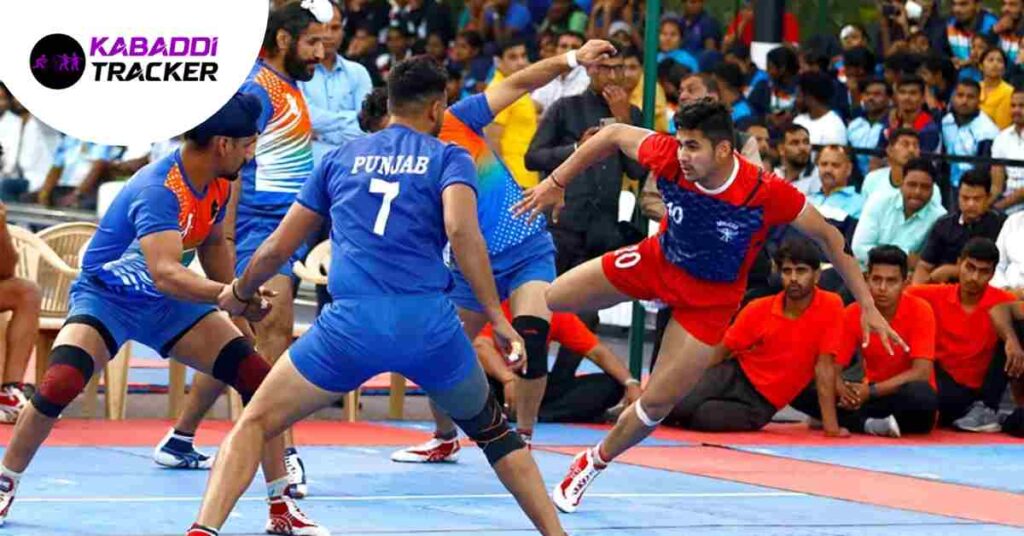
While international tournaments grab the spotlight, national championships form the bedrock of kabaddi’s growth. These events provide a platform for budding talents to showcase their skills and learn from experienced players.
In India, the Senior National Kabaddi Championships have been instrumental in identifying and nurturing talents from different states. These championships not only fuel healthy rivalries but also contribute to the continuous evolution of kabaddi techniques and strategies.
How many officials are there in the Kabaddi Match
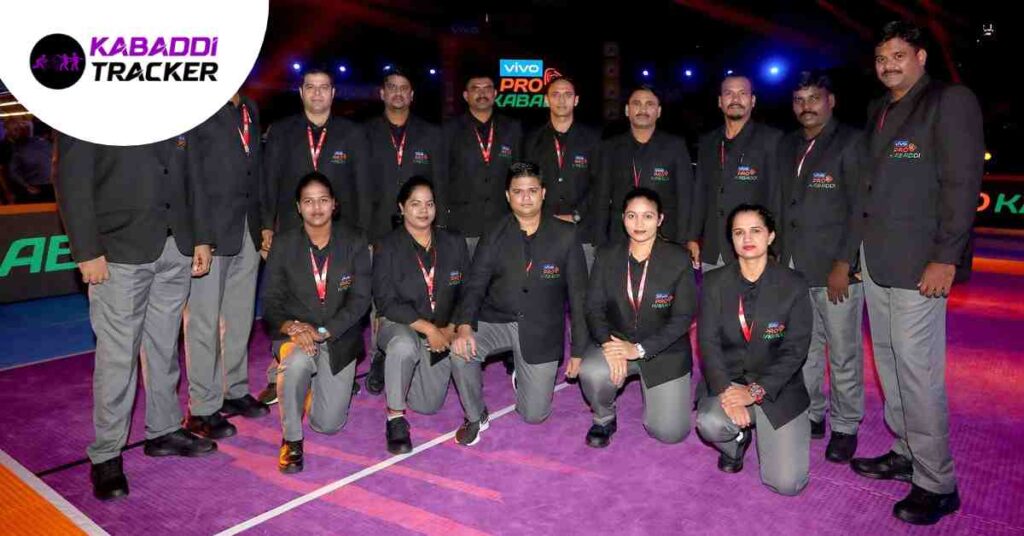
Kabaddi, a sport that originated in ancient India, has captivated the hearts of millions with its fast-paced action and unique blend of strategy and physical prowess. As the sport continues to gain international recognition, it becomes essential to delve into the intricate details that contribute to its smooth conduct.
At the heart of every kabaddi match, beyond the players and the cheering crowds, stands a dedicated group of officials who ensure the game’s fairness and integrity. In this article, we will explore the various officials present in a kabaddi match, their roles, and the responsibilities they shoulder to create a thrilling and regulated sporting experience.
The Officials in a Kabaddi Match
A kabaddi match involves a collection of officials who work collaboratively to enforce rules, maintain discipline, and facilitate a fair competition. These officials include referees, umpires, scorers, and technical officials, each contributing their unique skill set to uphold the integrity of the game.
- Referee: The referee is the central figure in a kabaddi match, responsible for ensuring that the game proceeds smoothly and fairly. The referee has the authority to make decisions on points, fouls, and other rule violations. They also oversee the coin toss at the beginning of the match and coordinate with the other officials to manage any disputes or incidents that may arise during the game.
Also Read – What Are Kabaddi Rules? - Umpires: In kabaddi, there are two umpires positioned on opposite sides of the playing field. They work in coordination with the referee and assist in making decisions related to points, fouls, and out-of-bounds situations. Umpires also communicate with each other to ensure that the game is conducted without bias and that both teams are treated equitably.
- Scorers: The scorers are responsible for tracking the points scored by each team during the match. They record successful raids, tackles, and bonus points in real-time. Scorers play a crucial role in keeping the score accurate and transparent, allowing both teams and spectators to understand the game’s progression.
- Technical Officials: Technical officials encompass a range of roles, including video referees and match commissioners. Video referees review critical decisions made by the on-field officials using video footage to ensure accuracy. Match commissioners oversee the overall conduct of the match, including interactions between teams, officials, and spectators. Their presence contributes to the smooth operation of the event.
Roles and Responsibilities in a Kabaddi Match
Each official in a kabaddi match has specific roles and responsibilities that contribute to the game’s fairness and safety. These responsibilities include:
- Enforcing Rules: Officials ensure that players adhere to the rules of kabaddi, such as crossing the center line during a raid, avoiding physical contact with opponents outside the play zone, and maintaining proper conduct throughout the match.
- Awarding Points: Officials award points to the attacking team for successful raids, where a raider tags opponents and returns safely to their side. Points are also awarded to the defending team for successful tackles, where they prevent the raider from returning safely.
- Monitoring Fouls: Officials identify and penalize fouls, such as holding onto opponents, intentionally stepping out of bounds, or delaying the game. These fouls result in points being awarded to the opposing team.
- Managing Disputes: In the event of disputes or confusion, officials collaborate to make informed decisions. They review the available evidence and consult with each other to ensure that the correct call is made.
- Ensuring Player Safety: Officials play a crucial role in maintaining player safety by enforcing rules that prevent dangerous actions, such as excessive force or rough play.
As kabaddi continues to capture the attention of fans around the world, the significance of officials in ensuring a fair and exciting match cannot be overstated. These dedicated individuals work tirelessly behind the scenes, upholding the rules, adjudicating decisions, and maintaining the spirit of the game.
From referees who oversee the action to scorers who diligently record every point, each official contributes to the seamless operation of kabaddi matches.
In conclusion, the world of kabaddi relies on a well-coordinated team of officials who embody the principles of fairness, integrity, and sportsmanship. Their collective efforts create an environment where players can showcase their skills and teams can compete on a level playing field.
As the sport continues to evolve and gain global recognition, it is imperative to recognize and appreciate the invaluable contributions of these officials to the world of kabaddi.
